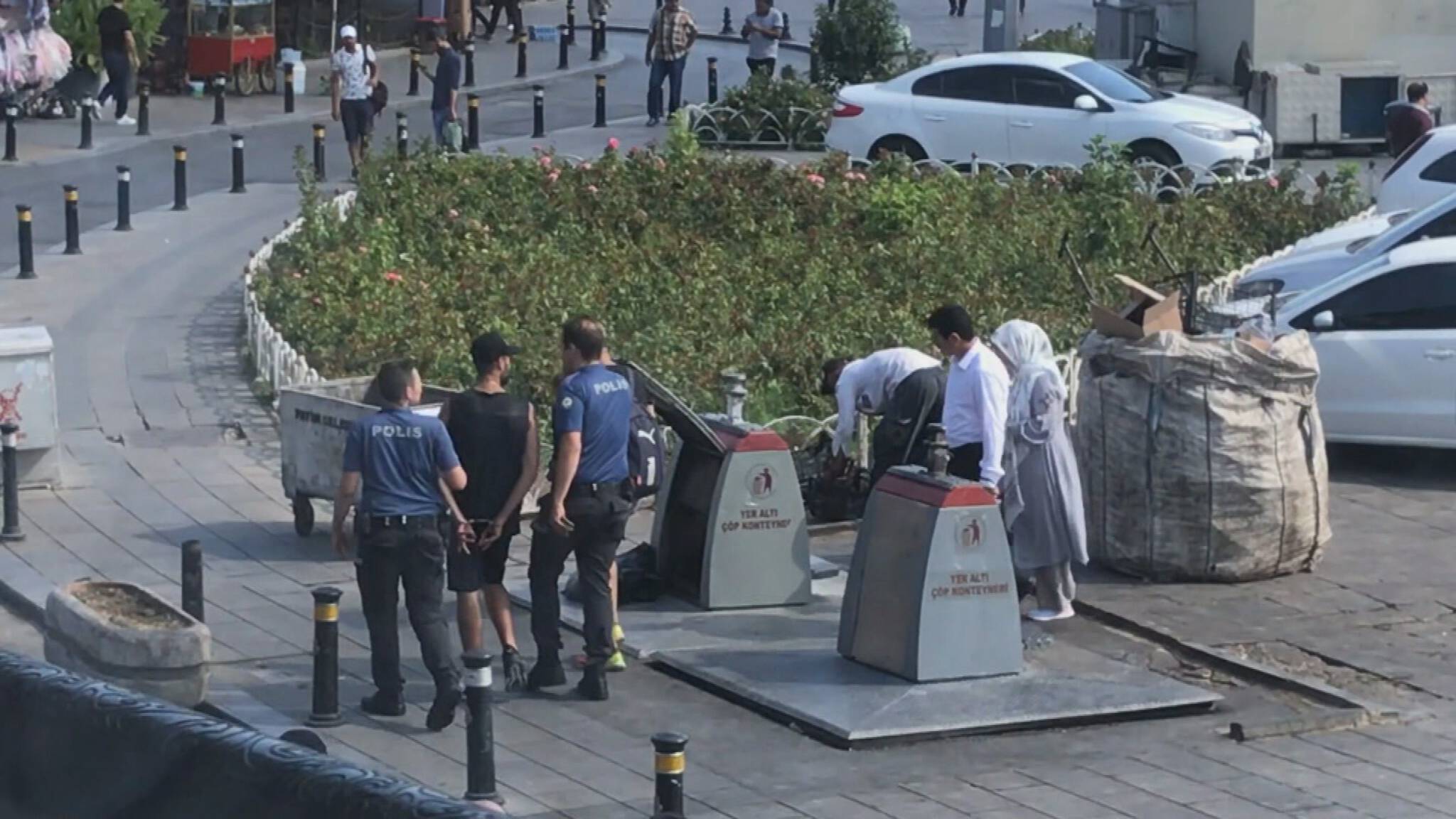
Deportaties in Turkije: 'Ze hebben hem naar Syrië gestuurd'
De
Turkse regering ontkent stellig, maar er komt steeds meer bewijs boven
tafel dat Syrische vluchtelingen vanuit Turkije de grens met Syrië over
worden gezet. Het zou sinds eind juli gaan om enkele duizenden gevallen.
In Istanbul worden mensen gearresteerd die dagen of weken later
opduiken in Syrië. Volgens Turkije gaat het om vrijwillige terugkeer,
maar gedeporteerde Syriërs ontkennen dat.
Lees hier verder:
https://nos.nl/artikel/2297678-deportaties-in-turkije-ze-hebben-hem-naar-syrie-gestuurd.html
Germany: Suspended Dublin transfer to Greece due to risk of chain refoulement to Turkey
On 17 July, the Administrative Court of Munich ruled to suspend the transfer of a Syrian national to Greece under the Dublin III Regulation 604/2013 (the Dublin Regulation).
The applicant previously applied for asylum on the island of Kos, Greece in 2018. In Greece, his application was deemed inadmissible as Turkey was considered the ‘First Country of Asylum’. The applicant subsequently travelled to Germany to join his parents and two brothers who live in Nuremberg. The German Federal Police apprehended the applicant following a border police check on a bus coming from Austria on 13 June 2019 and placed him in detention, refusing entry to the territory. Proceedings were then launched to return the applicant to Greece under the Dublin Regulation.
In examining the case, the Court held that the applicant, if returned to Greece, would likely risk chain refoulement to Turkey. While it recognised that return to a safe country is provided for under Article 38 of the recast Asylum Procedures Directive 2013/32/EU (rAPD), the third country must meet certain requirements in order for this concept to be applied. It held that it was doubtful as to whether Greece fully complies with Article 38 (1)(c) of the rAPD, which requires that the third country acts in accordance with the principle of non-refoulement enshrined in the Geneva Convention and that there is the possibility in that country to apply for protection.
The Court found that Turkey does not sufficiently implement the Geneva Convention in granting protection status for all applicants for asylum. It found that Syrian nationals are granted “temporary protection” but not a genuine status in accordance with the Geneva Convention. It ruled that this does not meet the requirements of Article 38 (1) of the rAPD.
The Court also held that the German-Greek Bilateral Agreement did not apply in the instant case as the applicant was denied entry to the territory on the grounds that he did not have the correct documentation. The Court also found that the Dublin Regulation proceedings were launched too soon and not in accordance with established procedure of the Regulation. The Court held that while the Dublin Regulation does not prohibit border procedures, transfers should be carried out following the steps laid out in the Regulation. As a result, the Court ruled to suspend the return order, awaiting a further hearing.
The case was litigated with support of Pro Asyl, RSA and Equal Rights Beyond Borders.
The EWLU would like to thank Vinzent Vogt (Equal Rights Beyond Borders) for bringing our attention to this case. Based on an unofficial translation by the EWLU team.
The applicant previously applied for asylum on the island of Kos, Greece in 2018. In Greece, his application was deemed inadmissible as Turkey was considered the ‘First Country of Asylum’. The applicant subsequently travelled to Germany to join his parents and two brothers who live in Nuremberg. The German Federal Police apprehended the applicant following a border police check on a bus coming from Austria on 13 June 2019 and placed him in detention, refusing entry to the territory. Proceedings were then launched to return the applicant to Greece under the Dublin Regulation.
In examining the case, the Court held that the applicant, if returned to Greece, would likely risk chain refoulement to Turkey. While it recognised that return to a safe country is provided for under Article 38 of the recast Asylum Procedures Directive 2013/32/EU (rAPD), the third country must meet certain requirements in order for this concept to be applied. It held that it was doubtful as to whether Greece fully complies with Article 38 (1)(c) of the rAPD, which requires that the third country acts in accordance with the principle of non-refoulement enshrined in the Geneva Convention and that there is the possibility in that country to apply for protection.
The Court found that Turkey does not sufficiently implement the Geneva Convention in granting protection status for all applicants for asylum. It found that Syrian nationals are granted “temporary protection” but not a genuine status in accordance with the Geneva Convention. It ruled that this does not meet the requirements of Article 38 (1) of the rAPD.
The Court also held that the German-Greek Bilateral Agreement did not apply in the instant case as the applicant was denied entry to the territory on the grounds that he did not have the correct documentation. The Court also found that the Dublin Regulation proceedings were launched too soon and not in accordance with established procedure of the Regulation. The Court held that while the Dublin Regulation does not prohibit border procedures, transfers should be carried out following the steps laid out in the Regulation. As a result, the Court ruled to suspend the return order, awaiting a further hearing.
The case was litigated with support of Pro Asyl, RSA and Equal Rights Beyond Borders.
The EWLU would like to thank Vinzent Vogt (Equal Rights Beyond Borders) for bringing our attention to this case. Based on an unofficial translation by the EWLU team.




Geen opmerkingen:
Een reactie posten